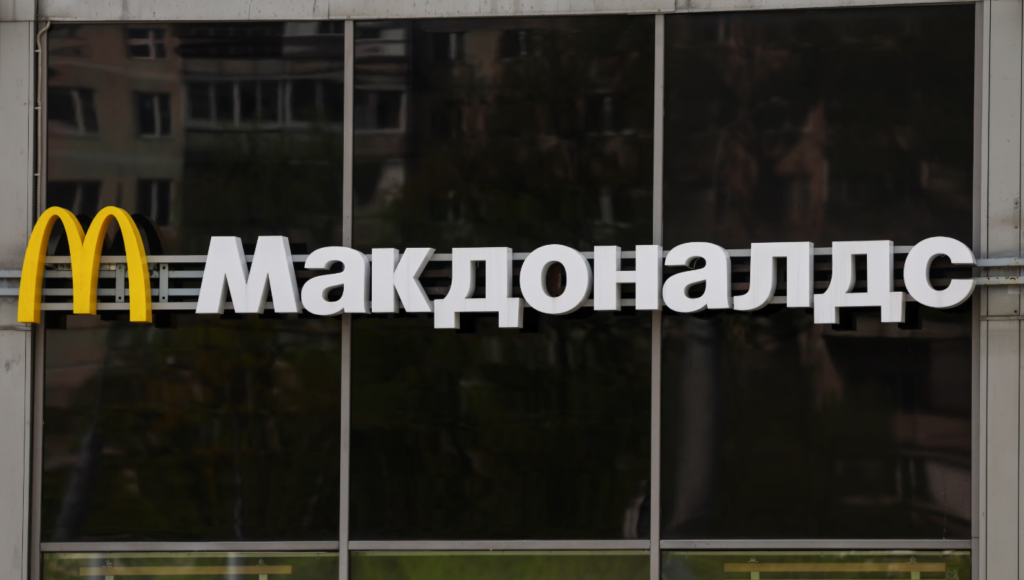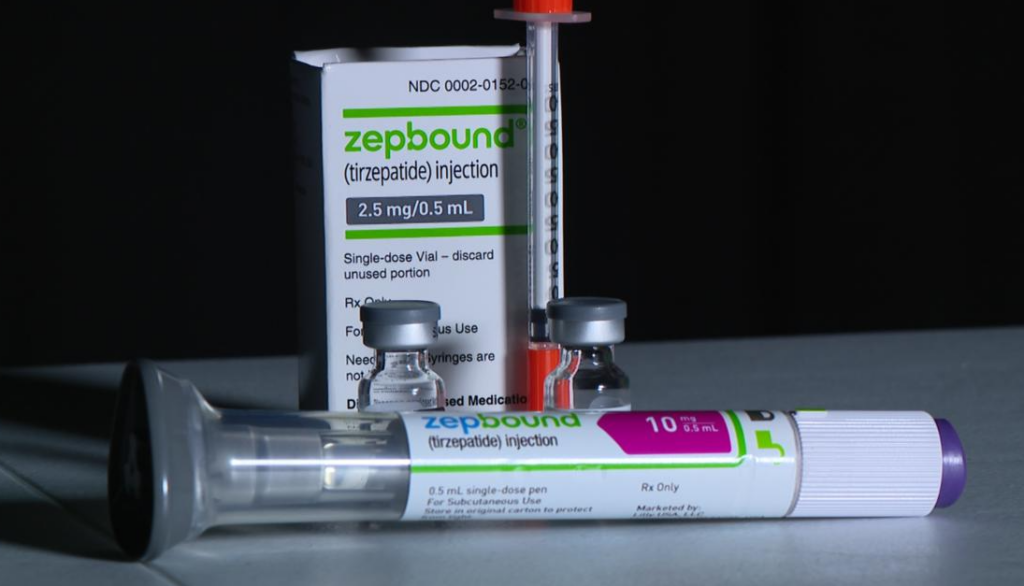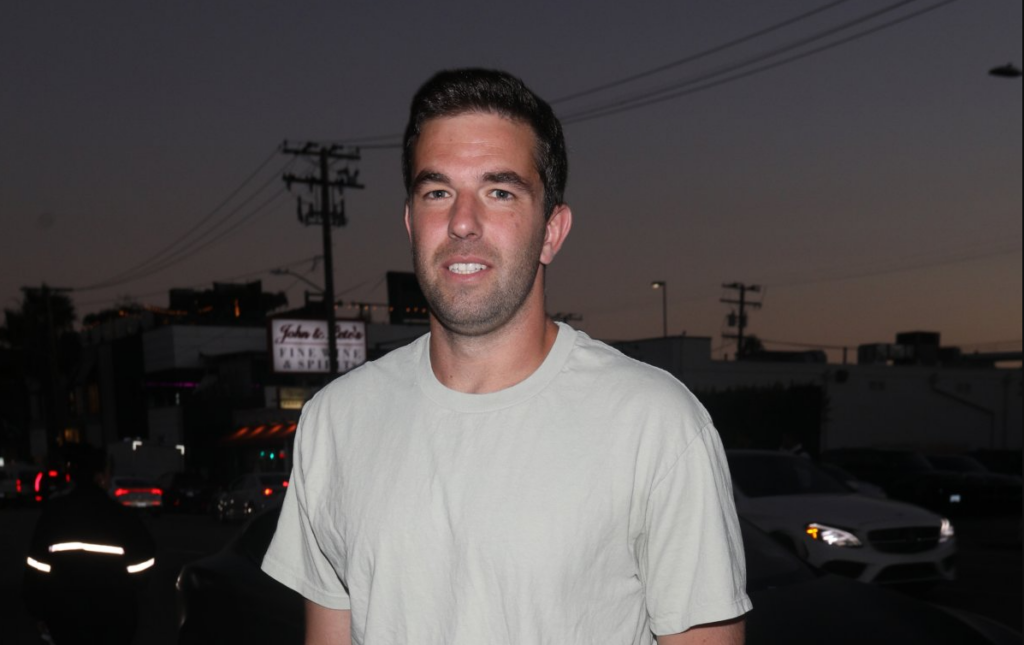Stock Market Overview
Markets continued their downward trend, with both equities and cryptocurrencies sliding further as investor anxiety over inflation persisted. Meanwhile, Krispy Kreme shares plummeted after the company failed to meet revenue expectations, citing a cyberattack that disrupted online sales.
Are U.S. Companies Considering a Return to Russia?

Three years after its invasion of Ukraine led to sweeping corporate withdrawals, Russia is signaling openness to the return of U.S. businesses.
President Trump, who has distanced himself from European allies and Ukraine in pursuit of a peace deal with Vladimir Putin, revealed that economic discussions between the two leaders have also taken place.
Ahead of yesterday’s U.S.-Ukraine resource and reconstruction agreement, Putin suggested that American firms could benefit from Russian projects in critical minerals and aluminum production. Additionally, a senior Russian official hinted that Boeing might reconsider sourcing titanium from Russia.
A Potential Shift in Business Strategy?
A Russian delegate at the recent Saudi Arabia-hosted U.S.-Russia negotiations claimed that American corporations have lost $324 billion since their 2022 exit, hinting at the potential benefits of renewed economic ties.
A Hesitant Return?
Despite these overtures, experts say that multinational corporations are unlikely to rush back to Russia anytime soon:
- Political and Legal Uncertainty: U.S. sanctions remain a significant barrier, and even if lifted, concerns over Russia’s regulatory unpredictability persist.
- Asset Seizures: Companies such as ExxonMobil and Carlsberg saw their Russian assets nationalized, reinforcing corporate fears of similar treatment.
- Market Viability: Russia’s economic downturn diminishes its appeal. Before the war, most multinationals generated less than 1% of their global revenue from Russia, according to Yale University research.
- Competitive Landscape: Many sectors previously dominated by Western brands have been replaced by domestic firms that now enjoy government favor.
While some consumer brands might consider a return, analysts suggest energy, finance, and other capital-intensive industries will likely remain on the sidelines.
Global Headlines
Consumer Confidence Declines Amid Inflation Worries
The U.S. Conference Board’s Consumer Confidence Index fell nearly 7% in February, its lowest level since June 2023 and marking the sharpest decline since 2021.
Key concerns:
- Rising inflation fears: Shoppers are increasingly worried about higher prices, particularly in food and housing.
- Tariff uncertainties: The Board’s chief economist noted that mentions of tariffs surged to levels unseen since 2019, following Trump’s renewed trade war threats.
- Employment outlook: Despite a strong labor market, consumers are growing less optimistic about job security.
Taiwan Intercepts Suspected Chinese Cable-Cutting Vessel
Taiwan has detained a Chinese-operated cargo ship, suspected of severing an undersea communication cable near its waters. Taiwanese officials have not ruled out the possibility of sabotage, while China’s Foreign Ministry declined to comment when approached by the Financial Times.
The incident follows a global trend of heightened concerns over subsea infrastructure vulnerabilities, with both China and Russia accused of interfering with key communication networks.
Eli Lilly Cuts Price of Weight-Loss Drug Zepbound

In a move to counter generic competitors, Eli Lilly announced price reductions for Zepbound, its popular weight-loss medication. The new pricing:
- $349 to $499 per month, depending on dosage—down by $50.
- Applies to vial versions of the drug, which require users to manually fill syringes.
The change comes amid increased competition from Hims & Hers and other providers offering discounted compounded versions of weight-loss injections. Lilly aims to retain market share while expanding access for uninsured patients.
Fyre Festival 2: The Sequel No One Saw Coming

Tickets for Fyre Festival 2 went on sale yesterday, with Billy McFarland, the convicted fraudster behind the infamous first event, once again at the helm.
Event Details (or Lack Thereof)
- Location: Quintana Roo, Mexico.
- Dates: May 30–June 2.
- Ticket Prices: Range from $1,400 to an eye-watering $1.1 million.
- Lineup: Still unannounced, but McFarland has promised a mix of electronic, hip-hop, pop, and rock.
- Activities: Advertised as including “water adventures, extreme sports, leisure & wellness experiences.”
Is This Even Legal?
McFarland, who was sentenced to six years in prison for defrauding investors and attendees of the original 2017 Fyre Festival, was released in 2022 and has been working to repay the $26 million in restitution he owes.
He has assured skeptical would-be festivalgoers that he has relinquished operational control to a team of event professionals. However, with no performers booked and vague details on accommodations, the event is already raising eyebrows.
What Else Is Happening?
- Apple shareholders voted against a proposal to scrap the company’s diversity, equity, and inclusion (DEI) initiatives—though executives suggested adjustments could be made.
- Unilever’s CEO, Hein Schumacher, is stepping down less than two years into his tenure as the company accelerates its restructuring efforts.
- Tesla’s European sales plunged 45% in January, following Elon Musk’s recent political interventions in France and Germany.
- Egypt’s long-delayed $1 billion Grand Egyptian Museum will open on July 3, after two decades of development, according to Prime Minister Mostafa Madbouly.
- Near miss at Chicago Midway Airport: A Southwest Airlines jet nearly collided with a private aircraft taxiing without clearance on the runway.

